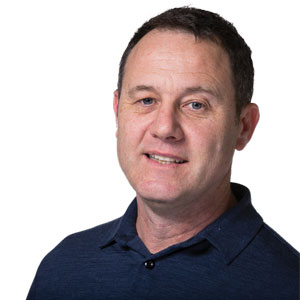THANK YOU FOR SUBSCRIBING

TipoTapp: Cutting-edge Enterprise Applications

 Paul Armstrong, Co-Founder and Head of Strategy
Paul Armstrong, Co-Founder and Head of Strategy“Serverless is to computing, as the mobile-network was to telecommunications,” says Paul Armstrong, TipoTapp's co-founder.
TipoTapp consists of a small team from Australia, New Zealand, and India who joined forces to simplify the application of technology and help businesses meet their goals at the speed they now find they need to deliver it.
“Africa and parts of Asia have leapfrogged from having no real telecommunications infrastructure to building new economies on what can be done on a smartphone,” continues Armstrong. “If you have not yet moved to the cloud then serverless will let you leapfrog your competitors. If you are already in the cloud then inevitably, just like getting a mobile network, you too will need to become serverless. It's not just a matter of keeping up with the next cool thing. Just like mobile networks are both in Africa and Australia, it’s an economic requirement of business.”
Further, CTO and co-founder of TipoTapp, Murali Sid explains that public clouds are not only innovative in what they deliver but how they deliver it. “Thinking of the cloud or using the cloud like it is a giant computer is missing the point that computers don’t have to matter anymore. It’s all about ‘service’,” he adds.
With the economies of scale of public cloud computing, just like with buses, restaurants, and doctors—a true consumption model, Sid argues, is where all public cloud services need and will go
“We saw the service delivery model cloud had invented and recognised that computer programming had to take the same path. Ignore the computer and deliver the service.”
That's what Sid says TipoTapp’s aim is. “We are delivering a custom software service in the form of web and mobile applications to meet the specific requirements of our clients. And just as you expect from a service, we want to make it effortless and fast.”
‘As-a-Service’ is of course not new. However, as Sid explains, many existing vendors use these words without living up to the benefits he believes they should be delivering. “If you pay for bus service, a restaurant service, or a doctor’s service, you don’t expect to pay a monthly fee. Alternatively, if you do, you would expect to get it cheaper than multiple usages. But many ‘as-a-service’ vendors have monthly user subscriptions. While you pay for 24x7 access, you can never hope to consume that as an individual. He goes on, “It’s not that they are ripping you off, they have computer servers that have to be kept running, even when you are not using the service. So they have to charge you for this too.”
With the economies of scale of public cloud computing, just like with buses, restaurants, and doctors—a true consumption model, Sid argues, is where all public cloud services need and will go.
Asked how he thought TipoTapp would be used, and where is it being used, Sid explained, “We thought we would find many individuals or small companies wanting to finally get their hands on an enterprise-grade software capability that is secure and scales economically. People with minimal software skills, but with existing business IP, who wanted to reach their business customers better with web and mobile automation. And we still believe this is an opportunity. But what we found is it is the enterprises themselves who understand the value of this model more. And they want to do it themselves rather than have integrators or big vendors do it to them.”
As a custom development platform, TipoTapp does not fit any single vertical. And this is evident in the range of organisations they have already worked with; medical device distribution, health and safety incident prevention, electricity asset servicing, and bioinformatics. Having nothing in common, other than just like most companies, as Sid points out, “they want to build software quickly and effortlessly. And they want it to scale economically.”

I agree We use cookies on this website to enhance your user experience. By clicking any link on this page you are giving your consent for us to set cookies. More info













